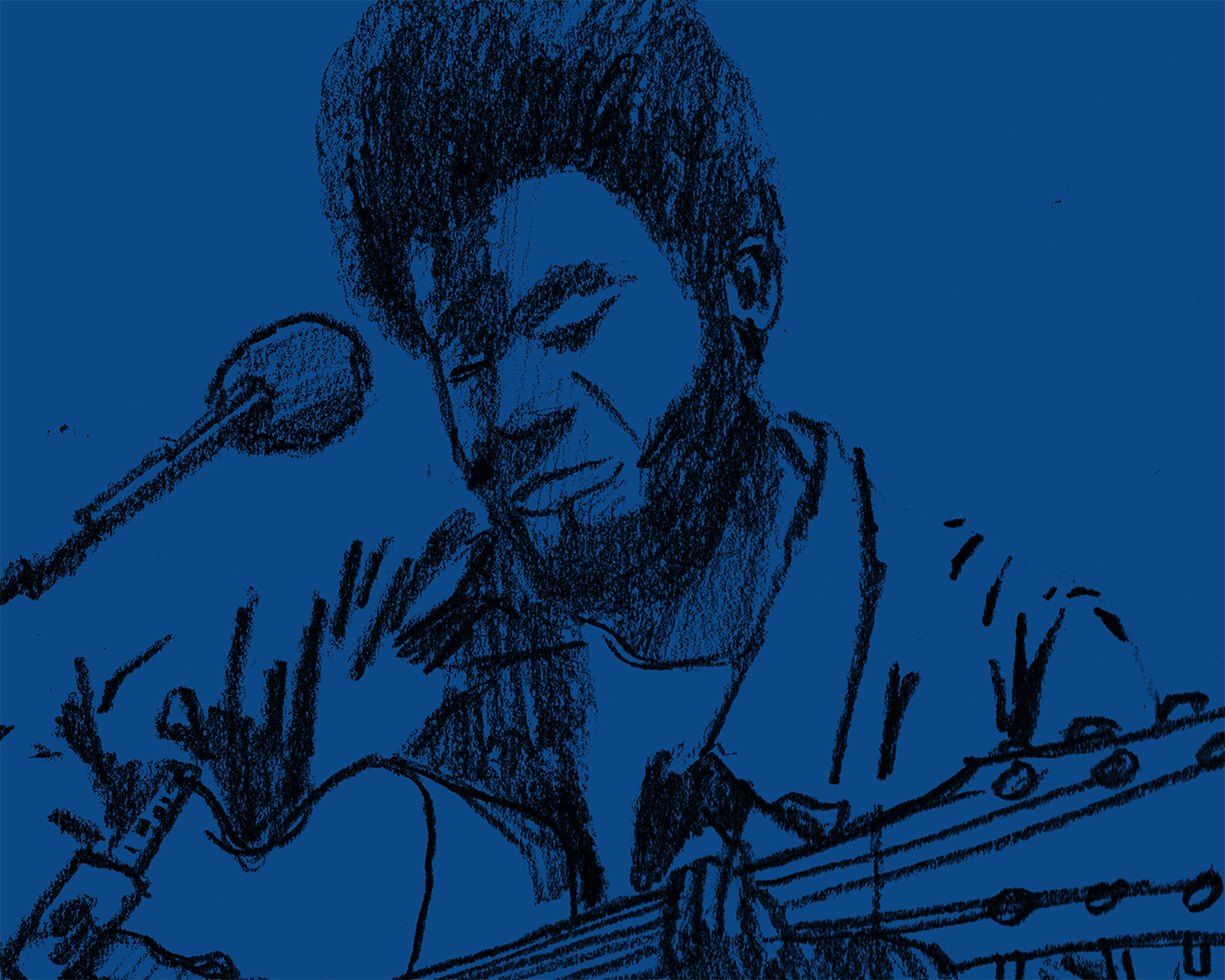If you’ve ever surfed YouTube, hopping from one video to the next every minute of the hour, you probably know it’s one of the best ways of unearthing new artists that make you seriously question your choices in life. One of these hidden gems I stumbled upon is Michael Kiwanuka, but he already made a name for himself long before I found him.
The London-born singer-songwriter of Ugandan parents found his debut album, “Home Again,” a critical success in 2012, making gold and ranking No. 4 on the U.K. Album Charts. He earned third place on the British Critics Choice short list in 2012 and won BBC’s poll “Sound of 2012.” He toured with Adele as a support act, and in 2016, he released a second and more progressive album, “Love & Hate,” which was nominated for album of the year by BBC Music Awards in 2016 and the Brit Awards in 2017.
This year, Kiwanuka is the featured artist of “On my Knees” by UNKLE, which was inspired by and featured in Netflix’s Oscar-nominated film “Roma.” The song strays slightly from Kiwanuka’s style seen of previous years, but he keeps to his roots with a masterful synthesis of classical and modern harmonies.
His style is evident from the start: a loop of funeralistic dread plays across a church organ before meeting an electric swell of reverberating doom that dies behind rapid keys and drums. Soon, Kiwanuka’s graveled voice calls, “Whoa, on my knees / Whoa, I can’t breathe / All that I ever prayed / That love would be where I stayed.”
Beyond Kiwanuka’s distinctive voice is his ability to deliver the soul of his music like only a handful of timeless classics have been able to achieve. Likened to Bill Withers and Otis Redding, Kiwanuka has a retro quality that bridges the past to the present, reviving the soul of what was and offering an almost nostalgic experience. Kiwanuka developed his ability to reanimate the past through his musical tastes growing up in London, where he admired the likes of Nirvana, Bob Dylan, Otis Redding and, most importantly, Jimi Hendrix, the man that inspired him to become a guitarist.
“I would listen to, like, jazz and ’70s rock-and-roll and soul and then folk and all these things,” Kiwanuka said in an interview at the Montreux Jazz Festival. “And I wanted to find a gig or like a musician or a singer that did that kind of music and I could play guitar with them, but they just weren’t really around. So, I just started to write my own songs for fun.”
“Love & Hate” producer Danger Mouse told Rolling Stone about when he first heard Kiwanuka on the radio, “I thought it was an old song. I thought it was an unearthed old soul song. Within a day I got an email saying, ‘Hey check this guy out.’ … I wanted to see what would happen if we worked together.”
What Kiwanuka and Danger Mouse got out of their collaboration was a serious change from Kiwanuka’s debut album, which was more traditional folk born of a bygone era. Instead, “Love & Hate” is a stark contrast that blends folk-rock and soul to a more modern ensemble. Alexis Petridis, the rock and pop critic for The Guardian, described the new sound, writing, ” … ambient electronics … the warped acoustic guitar that drives the title track; the way the sound plays with distortion, suddenly whacking it on Kiwanuka’s vocals at moments of high drama, or slathering it over the guitar on closer ‘The Final Frame’ until it sounds like it’s short-circuiting.”
“Love & Hate,” then, is proof of Kiwanuka’s musical evolution. The raw chords of a guitar tell of sorrow before the choir starts its wordless hymn, setting the beat before the drums set the pace. The piano works its way into the backbone of the piece before a hopeful symphony of violins starts, which fade when Kiwanuka’s voice pleads for redemption. “You can’t steal the things that god has given me,” he sings. “No more pain and no more shame and misery / You can’t take me down / You can’t break me down / You can’t take me down.”
The authenticity of Kiwanuka’s fervor is felt through every word and hypnotizing note. The young artist has the unique ability of not only bending genres but focusing the whole piece, pulling together every instrument, every contributing component so that nothing gets lost except the listener.
“I always think with songs as well [as with gigs], is for people to just escape, and they don’t even realize it,” Kiwanuka said in Jodie Canwell’s documentary “Out Loud!” “You just get lost in the melody and the sound. I think if you do that then you might have done a good piece of production.”
Despite his successes, Kiwanuka has faced discrimination in the industry. “People sometimes expected me to be into hip-hop or just ’90s R&B,” he told NPR, “but I was like listening to rock and roll … so I thought I was a bit of a weirdo because everyone was like white musicians and white bands and then Hendrix. I discovered Hendrix, and I was like everything is okay I can do it now.”
Although Kiwanuka exhibited shades of a folk singer on his debut album, “Home Again,” in 2012, critics assumed he was a soul artist because of his race. These issues and more led him to write “Black Man in A White World,” a song that underscores his thoughts on identity, but one he hesitated to release because it only reiterates what makes him feel othered in the first place.
“I just thought the lyric, it would just annoy people,” he explained to NPR’s Talia Schlanger. “I thought people would just misunderstand me because it’s so like, abrasive. Or it just was so clear. I’ve never been so open and honest on a track before …”
Despite his fears, the song received incredible reviews. Music critic Jon Pareles of The New York Times wrote, “‘Black Man in a White World’ [is] a complex declaration of identity, with a field-holler-like melody set to handclaps, tricky funk syncopations from Mr. Kiwanuka’s own guitar and bass tracks and jabs of disco strings.”
If you love classic songs, songs that provoke thought, play the strings of your heart or breathe life into your soul, Michael Kiwanuka just might be your next favorite artist.
















